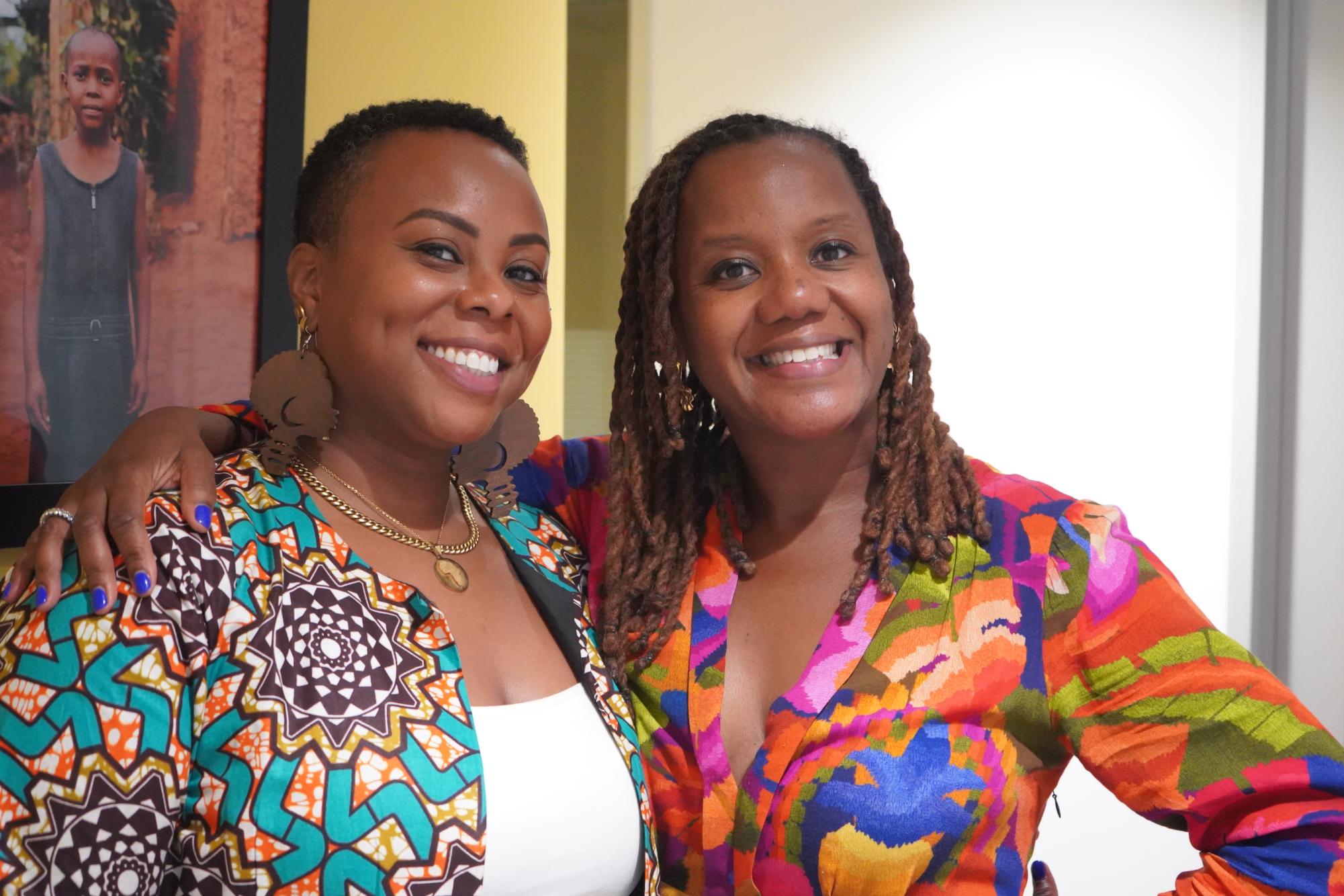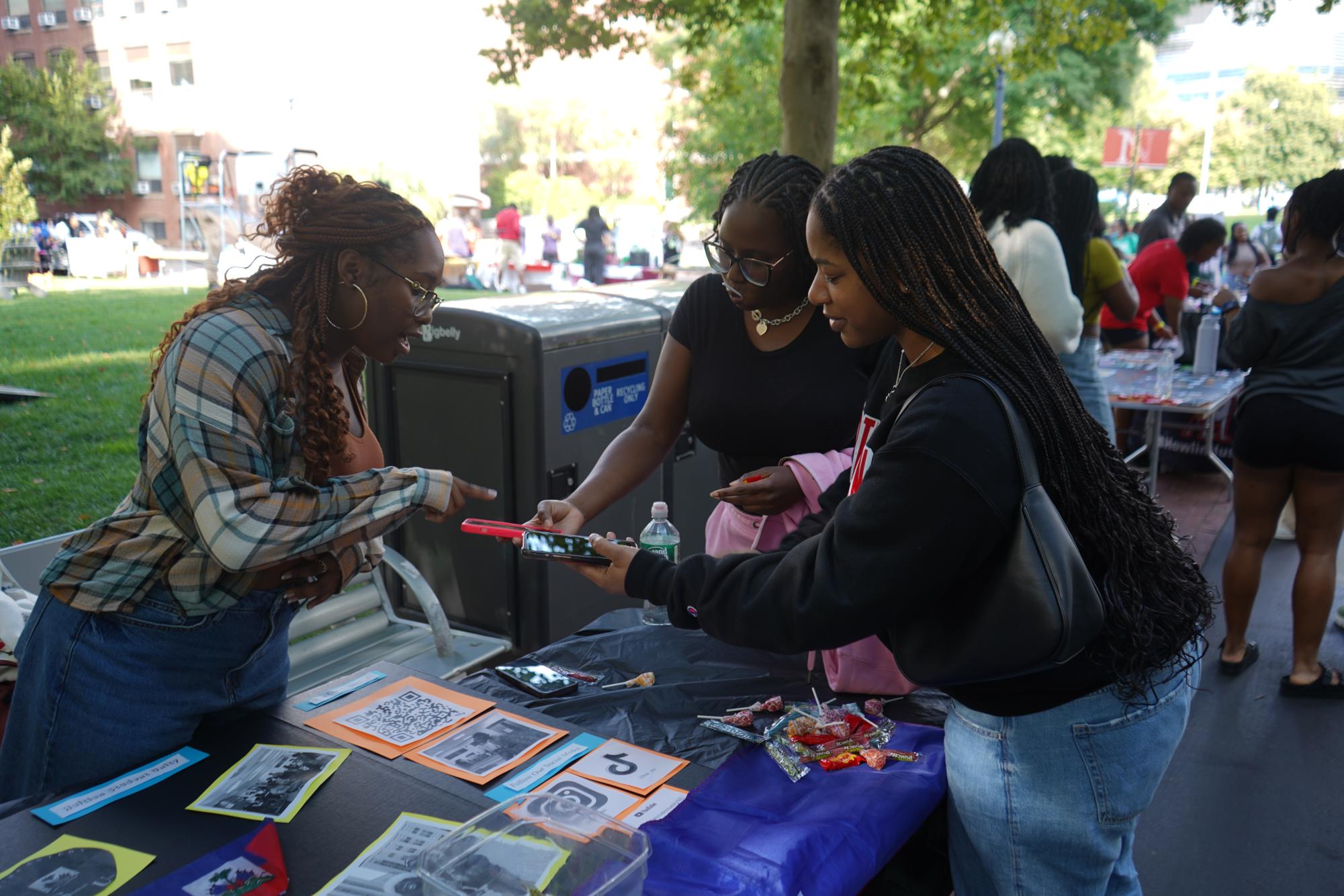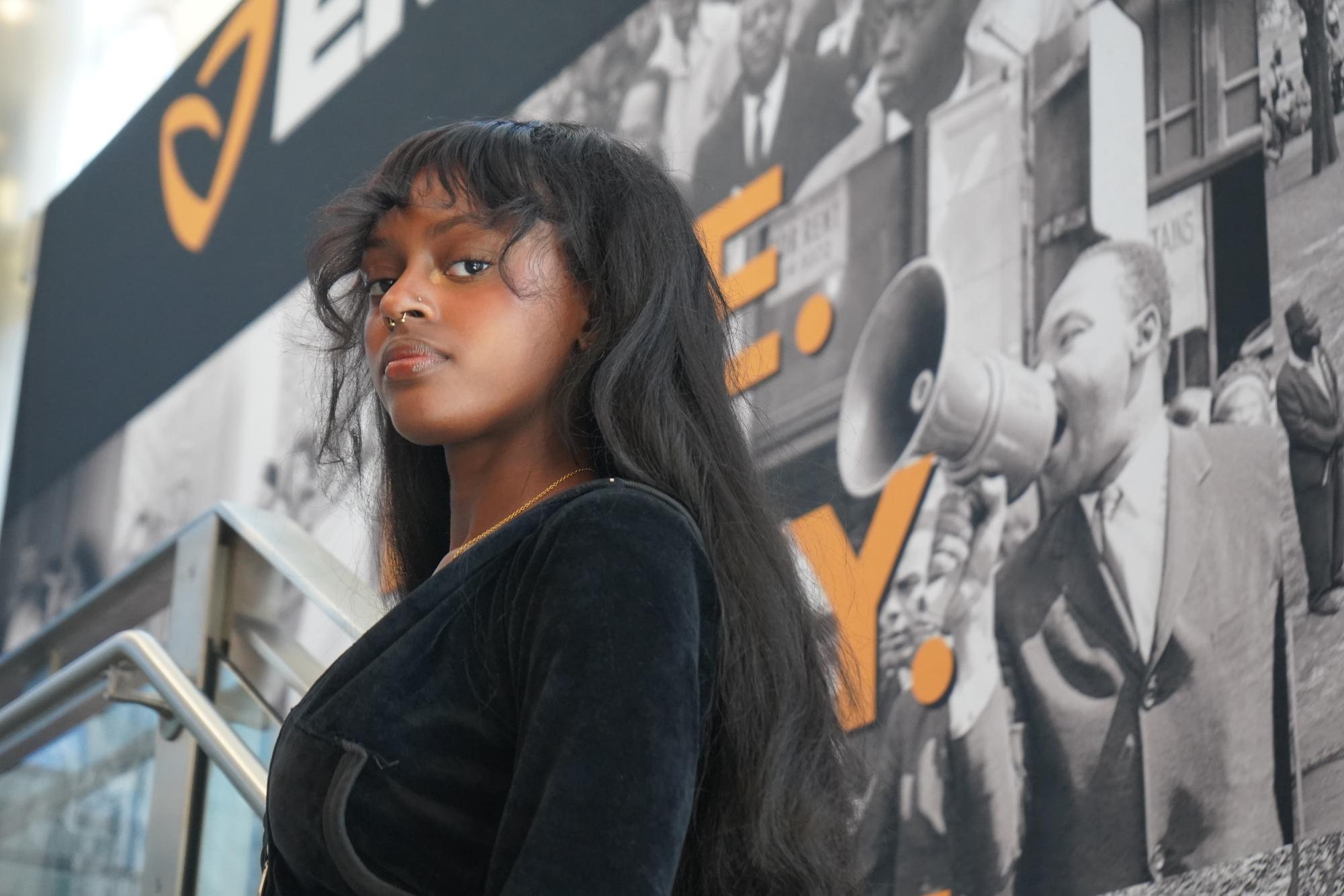Professor Régine Michelle Jean-Charles, director of the Africana Studies program and Dean’s Professor of Culture and Social Justice, was attending a talk by the first Black female Supreme Court Justice Ketanji Brown Jackson when one of her students sent her an email containing a screenshot of The News’ article reporting a 35% enrollment drop of Black first-year students at Northeastern.
“I anticipated that the decline would happen, but it’s always jarring when you see the numbers,” Jean-Charles said.
Northeastern wasn’t the only university that saw a decrease in Black student enrollment this academic year. The 35% drop reflects a nationwide trend of lower enrollment of Black students in the class of 2028 across colleges and universities following the 2023 Supreme Court decision overturning affirmative action in college admissions.
“I remember when affirmative action got overruled and Northeastern putting out a statement to say, ‘Oh, this won’t affect how we look at students. We embrace different thoughts and perspectives,’” said Rashida Jalloh, a fourth-year communications and media studies combined major and co-president of the Northeastern Black Students Association, or NBSA. “We clearly see that is a lie.”
Race-conscious affirmative action in colleges dates back to the 1960s, when admission departments intentionally enrolled more diverse students in an effort to address the lack of racial and ethnic minorities and women admitted. Despite affirmative action benefitting women and Black students in higher education, a conservative Supreme Court overturned the precedent in June 2023 on the basis that it violated the Equal Protection Clause.
“The origins of the United States of America as a country are racist and so it never surprises me when policy decisions, general public opinions, coincide with the racist, anti-Black origins of this country,” said Layla Brown, an assistant professor of cultural anthropology and Africana studies. Historically, Black students in the U.S. have faced many challenges in hopes of access to education, including legal exclusions from public schooling and discriminative schooling experiences fueled by segregation.
Despite the years of African American communities organizing to increase Black student enrollment, there is still a gap between Black student populations and their counterparts. Northeastern does not release demographic information of those they extend offers of admission to. However, of the 2,775 students currently enrolled on the Boston campus in the class of 2028, only 142 are Black students, according to data released by the school.
As students grapple with the state of post-affirmative action, several students told The News that the lack of Black students is evident and said their experiences can be “demoralizing” and “isolating,” Jean-Charles said.

Josiehanna Colon, a third-year criminal justice and human services combined major who was born and raised in Dorchester, said she grew up in a diverse neighborhood. But when she arrived at Northeastern, she felt out of place.
“I had the biggest culture shock in my own neighborhood,” Colon said at a NBSA general body meeting Sept. 25.
To Courtney Cade, a second-year business administration and communication studies combined major, diversity benefits entire communities, not only certain populations.
“It’s pretty important to immerse yourself in other cultures and not be limited to a Eurocentric view when [Northeastern is] clearly not the melting pot that we have in Boston,” Cade said. In Boston, Black people comprise 22.5% of the population, but only 5.1% of the new first-year class.
A central part of the Northeastern brand is encouraging students to be global citizens, but students wonder if that’s possible in the new post-affirmative action landscape. Jalloh said she does not think so.
“White people have more options. They have more access to tutoring, private schools. They’re set up for success. Black students are not,” Jalloh said to the crowd during an open discussion at the Sept. 25 NBSA meeting. Multiple students at the meeting recounted how they were often the only Black people in their classrooms.
Last year, the university celebrated the 50th anniversary of the Africana Studies department at Northeastern, which was founded by a group of Black student activists. The founding group of approximately 200 students had a list of 13 demands for the university in 1968. Through organizing efforts, student activists occupied buildings and protested until Northeastern agreed to their demands, which would ultimately increase Black student enrollment, Black faculty appointments and scholarships for Black students and mandate curriculum re-evaluation.
Of the agreed-upon 13 demands, the first demand specifically stated that “at least 10 percent of the incoming freshman class to be Black.” The population of students in the Northeastern class of 2028 who identify as Black is 5.1%.
“Is there a legacy from 50 years ago that needs to be continued? To tell the university this is not acceptable to us?” Jean-Charles said. “We want to see the numbers increase for both our students and our faculty.”
Many of Northeastern’s Black professors and students have expressed how the university has lacked in taking initiatives to address the enrollment decline of Black students. “I don’t think institutions have done enough,” said Idia Binitie Thurston, a licensed clinical psychologist affiliate professor of Africana Studies and associate director of the Institute for Health Equity and Social Justice Research at Northeastern. Thurston says she is “less worried about ‘are we doing enough?’ and I’m wondering ‘why we’re not?’ What is getting in the way of us [Northeastern] doing more?”
Northeastern is one of the collaborators in the Diversity in Academia research project by professor Thurston and Margarita Alegría. The research offers specific initiatives to help increase diversity and “advance diversity and equity in higher education following the Supreme Court’s decision striking down affirmative action.”
“The diversity of students plays a big role in how people of color feel belonging on campus,” said Shania Rimpel, a fourth-year biology major. Rimpel said she’s worried her sister, who is currently applying to colleges, will potentially have trouble finding spaces where she can be around other Black students.
“It’s important to show students of color that there is a space where they can find each other and so it makes the transition easier,” Rimpel said. She added that a lot of Black students who arrive at Northeastern “feel imposter syndrome.”
“That feeling is only going to increase as the population of Black students decreases,” Rimpel said.
But first-year Black student enrollment isn’t the only factor in declining diversity on campus. Students said another factor to consider is Northeastern’s retention rate of students and faculty of color.
Many Black community members, including students and faculty, have voiced their frustration with Northeastern’s retention rate and shared a common feeling of wanting to leave. Only 44.8% of students of color strongly agreed that “retention of historically marginalized students, faculty and staff is an institutional priority,” according to the university’s 2023 Diversity & Equity Survey report.
“We should also be talking about which students are not getting retained because of this impact because they don’t want to be the only [one] and they don’t want to go to these classrooms that [where] people don’t look like them or their ideas are not valued,” Thurston said.

The Huntington News is dedicated to serving the Northeastern University community with original, professional reporting and creating an environment in which student journalists can learn from one another. Support an independent, free press at Northeastern University with your donation today.











